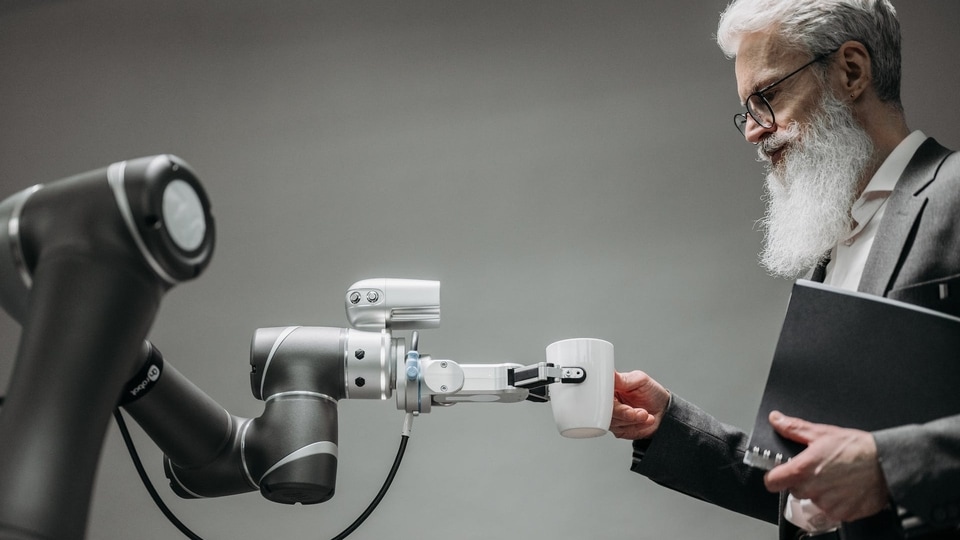In an artificial intelligence first, an AI system has successfully negotiated and amended a contract from start to finish without any human involvement. This groundbreaking demonstration of fully autonomous negotiation between two Artificial Intelligence agents promises to transform the efficiency of legal work.
AI-to-AI Negotiation Dramatically Streamlines Contract Process
Luminance, a pioneering UK-based Artificial Intelligence company, has developed an Artificial Intelligence agent named Autopilot that can independently review legal contracts in depth and negotiate changes with another Artificial Intelligence system entirely on its own.
 Autopilot was tasked with negotiating a non-disclosure agreement (NDA) with an Artificial Intelligence agent representing the counterparty. The two Artificial Intelligence negotiators analyzed the contract, proposed amendments, debated alternatives, and reached a final agreement without any human guidance or oversight during the process.
Autopilot was tasked with negotiating a non-disclosure agreement (NDA) with an Artificial Intelligence agent representing the counterparty. The two Artificial Intelligence negotiators analyzed the contract, proposed amendments, debated alternatives, and reached a final agreement without any human guidance or oversight during the process.
This Artificial intelligence-driven approach automates the most tedious and time-intensive aspects of contract review and negotiation. Lawyers at the two hypothetical companies represented by Artificial Intelligence only needed to review and approve the final negotiated document.
By delegating the back-and-forth negotiations and needless redlining of contracts to Artificial Intelligence agents, Luminance’s breakthrough technology dramatically streamlines the entire contract process from start to finish.
Excelling at Contract Analysis and Tasks
 Unlike general artificial intelligence systems, Autopilot was built using over 150 million legal documents to gain domain-specific knowledge about contracts. This rigorous legal training enables it to deeply understand industry terminology, rapidly identify standard and custom clauses, thoroughly assess alternative proposals, and negotiate suitable terms.
Unlike general artificial intelligence systems, Autopilot was built using over 150 million legal documents to gain domain-specific knowledge about contracts. This rigorous legal training enables it to deeply understand industry terminology, rapidly identify standard and custom clauses, thoroughly assess alternative proposals, and negotiate suitable terms.
For instance, when the NDA specified a 6-year duration for the agreement, Autopilot immediately determined this exceeded the 3-year limit permitted by its company’s internal policies. Drawing on its legal knowledge, the Artificial Intelligence agent promptly amended the duration to 3 years in alignment with guidelines.
Keeping Humans Thoroughly in the Loop
Although Autopilot independently handled the bulk of the contract negotiation, humans are still involved in oversight and final approvals. The system maintains detailed logs of every single change made to clauses, so lawyers can thoroughly audit the entire progression of the contract if desired.
By keeping humans firmly in the loop, Luminance ensures proper governance and supervision of their Artificial Intelligence system. The software is designed to enable Artificial Intelligence agents to do routine, repetitive work while freeing up humans to focus their time and expertise on higher-judgment aspects of contract law and negotiation.
Artificial Intelligence Poised to Transform Efficiency of Legal Work
This remarkable demonstration of fully autonomous AI-to-AI negotiation of a contract presages a transformation in how legal work is conducted. Streamlining the review and amendment process for common, routine agreements could free up lawyers everywhere to do more impactful, meaningful work.
As Artificial Intelligence capabilities grow more advanced in the coming years, lawyers may eventually primarily become monitors overseeing that Artificial Intelligence systems behave appropriately and identifying any errors. For now, Luminance’s Autopilot shows that thoughtfully designed collaboration between Artificial Intelligence and humans is the most promising path to substantially improving legal productivity and outcomes.
Future Potential for Artificial Intelligence in Law
Luminance’s Autopilot is just the beginning of Artificial Intelligence’s potential in law. As natural language processing continues improving, Artificial Intelligence agents could take over contract work for increasingly complex agreements. Artificial Intelligence may also expand into other legal domains like litigation discovery and research.
 However, Artificial Intelligence systems lack human judgment, so oversight will remain crucial. The ideal future would likely involve advanced Artificial Intelligence handling routine legal work while leaving complex strategic tasks and final approvals to human experts.
However, Artificial Intelligence systems lack human judgment, so oversight will remain crucial. The ideal future would likely involve advanced Artificial Intelligence handling routine legal work while leaving complex strategic tasks and final approvals to human experts.
If implemented responsibly, these Artificial Intelligence legal aides of the future could significantly expand access to legal services and free up humans to focus on the parts of the law that most require human skills. The possibilities for transforming legal work through AI-human collaboration are boundless.











